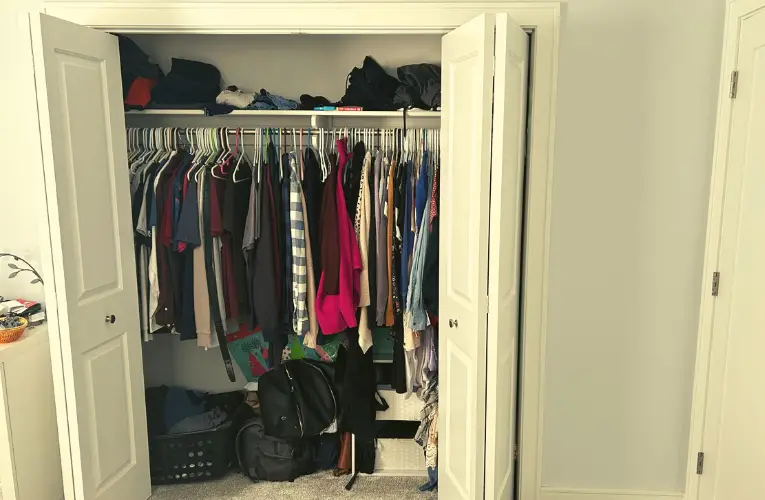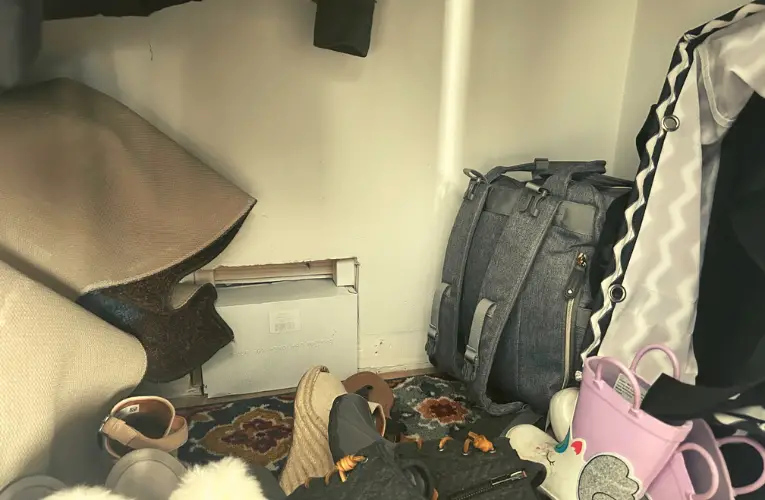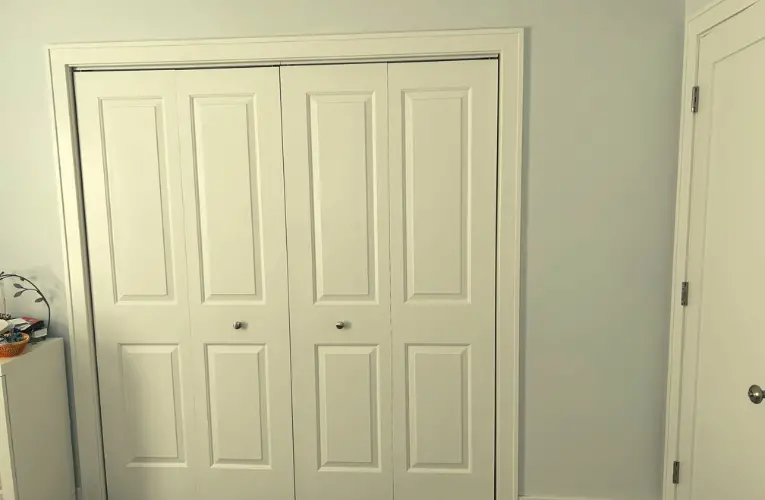Just because you are renting doesn’t mean you should give up your privacy. We’ve heard people asking before about what their privacy rights are and what they extend to. One common question we get is related to what exactly landlords are allowed to inspect. Can a landlord look in my closet? Let’s dive right in to the answer
Generally a landlord should not need to look in your closet. However, sometimes closet walls have access panels for plumbing or other amenities that may need to be accessed, in which case a landlord would need in your closet. Landlords should not be rummaging around your private things, but they may open your closet during a tour of the unit for a prospective renter, so they have an idea of the closet layout.

Unless it is an emergency, landlords must provide you with 24-48 hour notice before entering your apartment. Landlords should need permission to enter your unit outside of emergencies.
If it IS an emergency, the rules are different. Landlords can enter your apartment whether you are there or not, if they perceive the situation to be an emergency. Like we will learn below, closets can provide functional access to certain utilities the landlord may need to look at.
Why would my landlord need to look in my closet?
When we were landlords, some apartments that we owned had access panels or water shut-off valves in the closet. Of course this isn’t an ideal configuration, but this was a reason that we would have wanted access to a tenants closet.

We could have cared less what was in the closet as long as it wasn’t anything dangerous. We also would give proper notice at least 24 hours or more if we planned on entering a unit.
Some floor plans are configured so that the back of the closet shares a wall with the bathroom. Lots of apartments have an access panel in the back of the closet that provides access to water lines for bathroom fixtures. If there is a leak, frozen pipes, or any other issue, a landlord may need access to your closet.
A full-inspection of a unit such as an annual inspection could require inspecting the closets. Landlords are not looking specifically at your personal belongings but rather the condition of the closet itself. A landlord can tell you how clean to keep your apartment if it is compromising the safety of the unit.
The landlord could also be checking for water damage on the ceiling from a roof leak.
We had a 3rd floor apartment where we found water damage coming from the roof right where the closet was. You would not have seen it at any other part of the celling other than by looking in the closet and looking up with a flashlight. Since we caught the roof leak early we were able to fix it so that it did not do any more damage to the ceiling.
You also may be having an issue where you don’t have hot water in your apartment and an access panel needs to be removed inside your closet for the landlord to access certain plumbing elements. In our first apartment we had a closet access panel to the fancy jet-bathtub and that was the only way to get to certain parts of the tub and fix them.
Lastly, if the landlord is showing your apartment to someone, surely they will want to look inside your closet to get a idea for the space and setup.
The structure of the closet is the property of the landlords while the personal items are your own. The landlord still has a vested interest in the condition of this area when it comes to inspecting the condition of the unit.

Protecting your privacy
The question really is why would you not want a landlord to look in your closet?
If you have any clothing or other items that you don’t want people to see, maybe consider moving them to a dresser drawer, or other hidden storage area. Especially if you are expecting an apartment showing, or an apartment inspection, you should consider hiding anything private that you don’t want your landlord or prospective renters to see.
As landlords, we would NEVER go through our tenants closets just to snoop. If we needed to access a panel we would always notify the tenant about why we needed in the unit and what exactly we were planning on doing, or did.
The key is establishing a trust with your landlord. If you don’t trust your landlord, you may want to consider other rental options.
